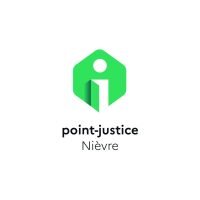Best Collaborative Law Lawyers in Nevers
Share your needs with us, get contacted by law firms.
Free. Takes 2 min.
Free Guide to Hiring a Family Lawyer
List of the best lawyers in Nevers, France
About Collaborative Law in Nevers, France
Collaborative Law is a legal process that allows parties in a dispute to work together with the help of their respective lawyers to reach a mutually agreeable solution without going to court. In Nevers, France, this approach is increasingly becoming popular, particularly in resolving family law issues, such as divorces or custody arrangements. This method emphasizes open communication and negotiation, which can be less adversarial and more amicable, making it an ideal choice for individuals seeking a less stressful resolution to their legal issues.
Why You May Need a Lawyer
Engaging a lawyer trained in Collaborative Law can be crucial in various situations. You may need legal assistance if you are going through a divorce and want to maintain a cordial relationship with your partner, if you have a complex family law issue like child custody or property division, or if you wish to resolve commercial or civil disputes collaboratively. Collaborative lawyers in Nevers are equipped to facilitate discussions, ensure that your rights are protected, and visualize solutions that cater to all parties involved.
Local Laws Overview
The principles of Collaborative Law have been incorporated into French law, providing a legal framework for collaborative processes. In Nevers, lawyers adhere to these principles by ensuring confidentiality, committing to a non-litigation process, and encouraging voluntary information exchange. Key aspects that are particularly relevant include the necessity for each party to be represented by their own collaboratively trained lawyer and the focus on reaching a solution tailored to the unique needs of the parties involved.
Frequently Asked Questions
What is the main goal of Collaborative Law?
The primary goal is to reach a settlement that addresses the interests of all parties involved without the need for contentious litigation.
How does Collaborative Law differ from mediation?
While both processes aim to settle disputes amicably, Collaborative Law involves both parties having their own lawyers who work together to reach a solution, whereas mediation involves a neutral third party to facilitate negotiation.
Is Collaborative Law legally binding?
Any agreement reached through Collaborative Law can be formalized and made legally binding once both parties sign a formal settlement agreement.
Can I switch to a traditional court process after starting Collaborative Law?
Yes, but if the collaborative process fails, the lawyers involved in it cannot represent you in subsequent litigation, requiring you to seek new representation.
Are all cases suitable for Collaborative Law?
No, cases involving domestic violence or severe power imbalances may not be appropriate for the collaborative process.
What is the typical duration of a Collaborative Law process?
The duration varies depending on the complexity of the issues but is generally quicker than court proceedings when cooperation is maintained.
Is Collaborative Law only for family disputes?
No, it can also be applied to a variety of other disputes like employment conflicts, business disputes, and other civil matters.
Does Collaborative Law lead to better outcomes for children in divorce cases?
Often, yes. It allows parents to work collaboratively on arrangements that serve the best interests of the children, reducing the emotional impact of divorce.
How is confidentiality maintained?
All discussions and information shared during the process are protected by confidentiality agreements signed by both parties and their lawyers.
What qualifications should a Collaborative Lawyer have?
Lawyers should have specific training in collaborative practices and be familiar with local laws governing collaborative procedures in Nevers.
Additional Resources
If you are considering Collaborative Law, several resources can provide guidance. The French Bar Association offers information on finding certified collaborative lawyers. Local family courts in Nevers may also provide resources and referrals. Additionally, the International Academy of Collaborative Professionals can offer educational materials and referrals.
Next Steps
If you need legal assistance in Collaborative Law, your first step should be to contact a lawyer specialized in collaborative practices in Nevers. Arrange an initial consultation to discuss your situation, assess the suitability of the collaborative approach, and understand the potential legal pathways available. Prepare to provide a full account of your dispute, and consider what your ideal outcome would be. This approach will enable you and your lawyer to plan an effective strategy for your case. Remember, being informed and prepared can significantly enhance the effectiveness of your collaborative process.
Lawzana helps you find the best lawyers and law firms in Nevers through a curated and pre-screened list of qualified legal professionals. Our platform offers rankings and detailed profiles of attorneys and law firms, allowing you to compare based on practice areas, including Collaborative Law, experience, and client feedback.
Each profile includes a description of the firm's areas of practice, client reviews, team members and partners, year of establishment, spoken languages, office locations, contact information, social media presence, and any published articles or resources. Most firms on our platform speak English and are experienced in both local and international legal matters.
Get a quote from top-rated law firms in Nevers, France — quickly, securely, and without unnecessary hassle.
Disclaimer:
The information provided on this page is for general informational purposes only and does not constitute legal advice. While we strive to ensure the accuracy and relevance of the content, legal information may change over time, and interpretations of the law can vary. You should always consult with a qualified legal professional for advice specific to your situation.
We disclaim all liability for actions taken or not taken based on the content of this page. If you believe any information is incorrect or outdated, please contact us, and we will review and update it where appropriate.









